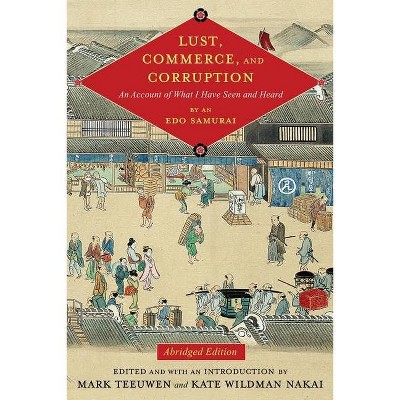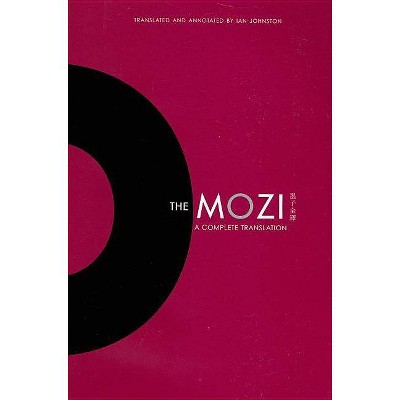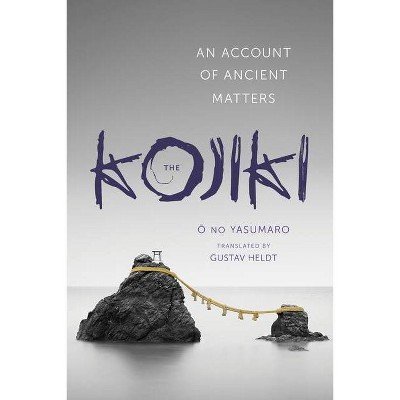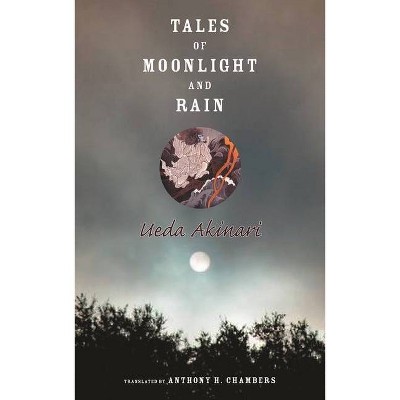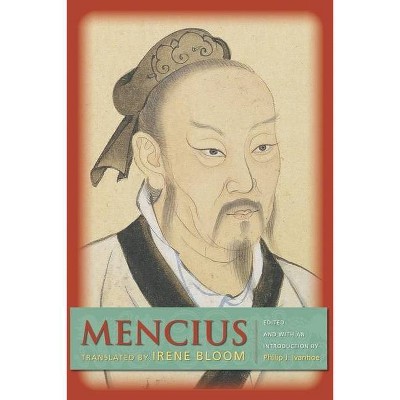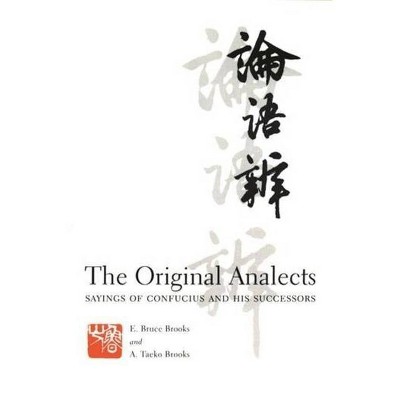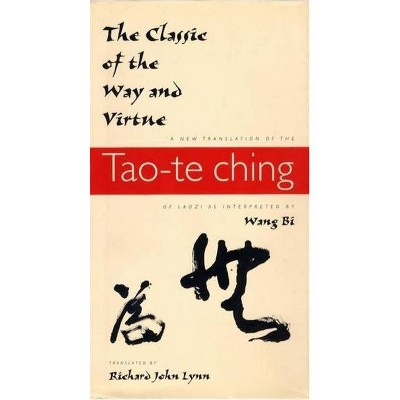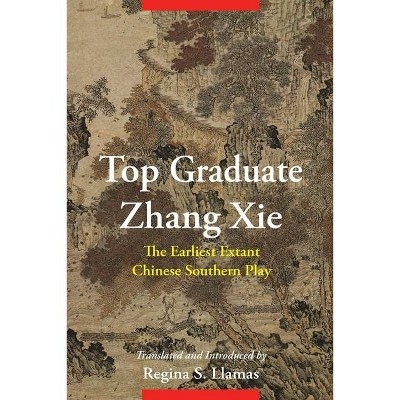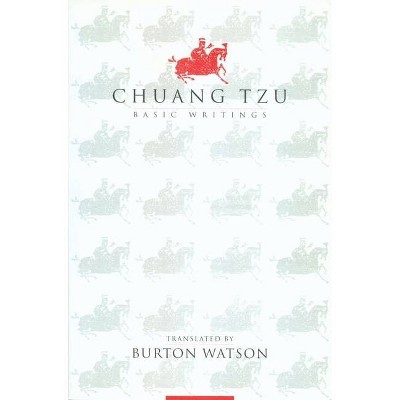Lust, Commerce, and Corruption - (Translations from the Asian Classics) Annotated by Mark Teeuwen & Kate Wildman Nakai (Hardcover)
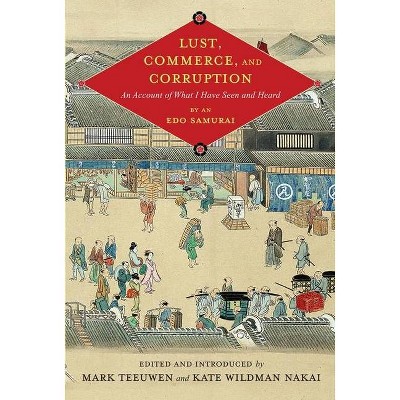
Similar Products
Products of same category from the store
AllProduct info
<p/><br></br><p><b> About the Book </b></p></br></br>An anonymous samurai author's detailed 1816 critique of Edo society.<p/><br></br><p><b> Book Synopsis </b></p></br></br>By 1816, Japan had recovered from the famines of the 1780s and moved beyond the political reforms of the 1790s. Despite persistent economic and social stresses, the country seemed to be approaching a new period of growth. The idea that the shogunate would not last forever was far from anyone's mind. <p/>Yet, in that year, an anonymous samurai author completed one of the most detailed critiques of Edo society known today. Writing as Buyo Inshi, "a retired gentleman of Edo," he expresses a profound despair with the state of the realm and with people's behavior and attitudes. He sees decay wherever he turns and believes the world will soon descend into war. <p/>Buyo shows a familiarity with many corners of Edo life that one might not expect in a samurai. He describes the corruption of samurai officials; the suffering of the poor in villages and cities; the operation of brothels; the dealings of blind moneylenders; the selling and buying of temple abbotships; and the dubious strategies townspeople use in the law courts. Perhaps the frankness of his account, which contains a wealth of concrete information about Edo society, made him prefer to remain anonymous. <p/>This volume contains a full translation of Buyo's often-quoted but rarely studied work by a team of specialists on Edo society. Together with extensive annotation of the translation, the volume includes an introduction that situates the text culturally and historically.<p/><br></br><p><b> Review Quotes </b></p></br></br><br>Teeuwen and Nakai also edited the volume as a whole, masterfully orchestrating their own translation work with that of their three collaborators... An extraordinary job of rendering Buyo Inshi's lengthy text in an eminently readable and impressively consistent manner... This book will undoubtedly be instantly recognized as a classic read for students of Tokugawa Japan.--Japanese Studies<br><br>The volume is in graceful and highly accessible English, and equipped with a very helpful and lengthy introduction, a glossary, and other useful supports. The latest in the eminent 'Translations from the Asian Classics' series, it adds much to the awareness of Japan's evolution.--Choice<br><br>A well-translated firsthand account of life in Japan's capital 200 years ago.... As a scholarly text, <i>Lust, Commerce, and Corruption</i> is superior.... As valuable for its preservation of the unique opinions of the author as it is for the myriad historical facts and details it brings to the fore.--Tyler Rothmar "The Japan Times "<br><br>Readers will find a wealth of factual information in this long tirade about the ills of the society.--Oliver Ansart "Asian Studies Review "<br><br>The translation is an amazing piece of co-operative work, and how five scholars managed to produce such a seamless book is nothing short of a miracle.... A great pleasure to read.--John Butler, University College of the North "Asian Review of Books "<br><br>This biting social commentary by an anonymous Tokugawa-era samurai, long known to Japan specialists, has now been made available in a lucid and flowing English translation that deserves to be widely read. The samurai author offers a wide-ranging critique of Edo society, sparing no class, particularly his own, and thus presents an insightful picture of Japan on the eve of its forced encounter with the West.--Constantine N. Vaporis, University of Maryland<br><br>This book provides many entertaining accounts of the world of Edo at the beginning of the nineteenth century. The author, who styles himself as a disgruntled, old-fashioned samurai, laments the corruption of the world under the influence of peace and commercialization, revealing many of the key anxieties of the age. The talented translators, all top scholars of Edo studies, bring a very foreign world to life and re-create the engaging and accessible style of the original.--Luke Roberts, University of California, Santa Barbara<br><br>This translation of <i>Seiji kenbunroku</i> is a wonderful and invaluable addition to our view of nineteenth-century Japan, and covers an amazing range of social groups and professions, with detailed accounts of the back-side of everyday lives. His unadulterated views and his vivid vignettes defy the textbook stereotypes. It will change forever what you thought Japan was like at the beginning of the nineteenth century.--Haruo Shirane, Columbia University<br><br>This work is the lament of a man who had been brought up to believe in promises that the 'real' world was never going to fulfill and was struggling to come to terms with this betrayal. When read as the story of a broken heart, [<i>Lust, Commerce, and Corruption</i>] is nothing short of beautiful, moving, and full of humanity.--Laura Nenzi "Monumenta Nipponica "<br><p/><br></br><p><b> About the Author </b></p></br></br>Mark Teeuwen is professor in Japanese studies at the University of Oslo. He is a historian of Japanese religion, with special focus on the history of Shinto. <p/>Kate Wildman Nakai is a professor emerita at Sophia University, Tokyo. Her research focuses on Tokugawa and modern history, with an emphasis on intellectual developments. <p/>Miyazaki Fumiko is professor of Japanese history at Keisen University in Tokyo. Her research focuses on Tokugawa religion and society. <p/>Anne Walthall is professor of Japanese history and director of the Center for Asian Studies at the University of California, Irvine. Her research focuses on society and gender during the Tokugawa period. <p/>John Breen is a professor at the International Research Center for Japanese Studies, Kyoto, where he edits the journal <i>Japan Review</i>. His research focuses on issues of state and religion in Japan.
Price History
Price Archive shows prices from various stores, lets you see history and find the cheapest. There is no actual sale on the website. For all support, inquiry and suggestion messagescommunication@pricearchive.us
